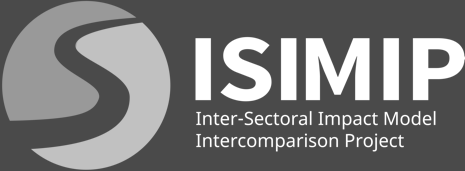Dear ISIMIP community,
The last month has been eventful. We would like to update you on data issues (1), changes in sector coordination (2) and several new publications (3); you can read more about these topics below. Finally, we also have two announcements from ISIMIP participants.
- Update on the ISIMIP3 climate input data discontinuities:
The bias-adjustment problem does not only affect ISIMIP3b but also the observational climate forcings provided in ISIMIP3a. We will update the ISIMIP3b bias-adjusted climate input data, and the ISIMIP3a observational and counterfactual climate input datasets (both GSWP3-W5E5 and GSWP3), improving our ISIMIP3 climate forcings on several levels. - Sector coordination restructuring:
- The biomes sector coordination has changed:
Jinfeng Chang from Zhejiang University will take over the sector coordination part from Philippe Ciais. Philippe will remain in touch for discussions and advice and Jinfeng will handle the biomes sector together with Christopher Reyer. We would like to thank Philippe for his support over the years and of course also Jinfeng for taking over.
- The permafrost sector coordination has changed:
We welcome Eleanor Burke, who officially joined the permafrost sectoral coordination. Eleanor works at the UK Metoffice as a permafrost research scientist focusing on improving the physical representation of the permafrost within JULES. We are very pleased about her joining the sectoral coordination, her experience and community engagement will be of great value for ISIMIP.
- The health sector coordination has changed:
Kristie Ebi and Franziska Piontek will step down from their roles as sectoral- coordinator and contact person, respectively. Iliusi Vega will take over the overall coordination of the health sector (related to all practical issues), and the coordination with respect to scientific questions will be shifted more strongly to the health sub-sectors themselves. Veronika Huber and Joacim Rocklöv will stay involved in their specific fields: water-borne diseases and thermal stress, and vector-borne diseases, respectively. We would like to thank Kristie Ebi and Franziska Piontek for their support over the years, and Veronika and Joacim for continuing their support within their sub-sectors. - New publications:
In the last month, we collected 22 new ISIMIP publications on our website! These include two ISIMIP3 papers and seven publications from 2021 with data from the Water (global), Permafrost, Agriculture and Lakes (global) sectors.
The ISIMIP list of publications is manually collated and its completeness depends on information provided by sector coordinators, PIK reports, anonymous contributions and manual searches.
We want to encourage you to please contribute to this list. If you cannot find your paper in it, please write us to info@isimip.org, or submit your entry for moderation using our online form at http://isimip.org/outcomes/publications-overview-page/isimip-paper-form/
Best greetings and take care,
the ISIMIP group @ PIK
PS: Two external announcements from ISIMIP participants (also shared within Announcements):
- Community Survey on Reproducible Geosciences:
We want to invite you to take part in the 10-min anonymous survey designed by Robert Reinecke, Tim Trautmann, Thorsten Wagener, and Katja Schüler: http://poll.remodel.global
This interesting project aims to find out the community perspective on reproducibility in computational geosciences, and how we can move forward. More details on https://www.waterandchange.org/en/reproducible-modeling/
There is no strict deadline, but as first results will be published on 1st August 2021, we encourage you to reply by the end of June, 2021. - Call for international panel members by the Research Foundation – Flanders (FWO):
We want to invite you to look at this call shared by Wim Thiery. The FWO is looking for international experts in different scientific fields to join their expert panels, which meet once or twice a year in Brussels to evaluate research proposals submitted by researchers in Flanders. Panel members receive a fee per meeting day and the majority is not affiliated to a Flemish research institution. The FWO strongly encourages women to apply. More information at https://www.fwo.be/en/reviewcollegeENG
The deadline for application is April 30, 2021.
